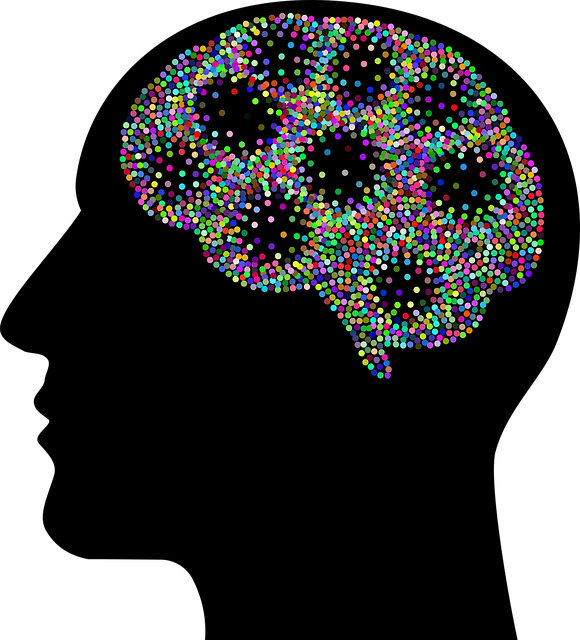Northglenn American Sign Language Therapy introduces the Resilience, Flexibility, and Mastery (RFM) framework, combining risk assessment with resilience-building exercises to enhance mental well-being. This approach equips individuals, especially healthcare providers, with effective coping mechanisms and stress reduction strategies. Through ASL teaching as a communication tool, the program fosters community, social skills, and burnout prevention in demanding work environments. RFM exercises promote emotional resilience, adaptability, and mindfulness, significantly improving overall well-being and life navigation skills. The method has proven successful in transforming clients' lives, boosting mental wellness, and fostering self-care routines.
“Unleash your inner resilience with an innovative approach to well-being: RFM (Recollection, Feeling, and Movement). This powerful method, showcased by Northglenn American Sign Language Therapy, transforms emotional healing. By engaging in RFM exercises, individuals can process trauma, enhance self-awareness, and cultivate a deeper sense of calm.
The article explores how this unique therapy integrates recollection, expressive movement, and sensory experience to build resilience. From its theoretical foundations to real-life success stories, discover the impact of RFM on emotional well-being and learn practical ways to incorporate these techniques into daily routines.”
- Understanding RFM and its Role in Resilience Building
- Northglenn American Sign Language Therapy: A Unique Approach
- The Impact of RFM Exercises on Emotional Well-being
- Practical Applications: Incorporating RFM into Daily Life
- Success Stories: Real-life Transformations Through RFM
Understanding RFM and its Role in Resilience Building

Resilience is a crucial aspect of mental well-being, enabling individuals to navigate life’s challenges and overcome adversity. This is where RFM (Risk, Resilience, and Mental Health) comes into play, serving as a comprehensive framework for understanding and enhancing resilience. Northglenn American Sign Language Therapy recognizes the importance of RFM in fostering a robust support system for mental health professionals and those seeking therapy.
By integrating risk management planning, which involves identifying potential hazards and implementing strategies to mitigate them, with resilience-building exercises, individuals can develop a strong coping mechanism. Risk assessment is a vital component, allowing for early identification of vulnerable areas. This proactive approach, coupled with effective stress reduction methods, empowers individuals to build mental fortitude. Thus, RFM becomes a powerful tool in the field of mental health, ensuring professionals and clients alike are equipped to handle life’s complexities.
Northglenn American Sign Language Therapy: A Unique Approach

Northglenn American Sign Language Therapy offers a unique and innovative approach to enhancing communication and building resilience among individuals in the healthcare sector. By combining the ancient art of sign language with modern wellness practices, this therapy program targets the specific challenges faced by healthcare providers who often experience high-stress levels and burnout. The Northglenn ASL Therapy team recognizes that these professionals require effective burnout prevention strategies, which is why they’ve designed a tailored curriculum.
Through interactive sessions, participants learn American Sign Language (ASL), not only as a form of communication but also as a powerful tool for stress reduction and social skills training. The program encourages a sense of community among healthcare workers, fostering connections that can be lacking in their daily practices. By embracing ASL, therapists help providers develop new ways to express themselves, reduce workplace tension, and enhance patient interactions, ultimately contributing to improved job satisfaction and overall resilience in demanding healthcare environments.
The Impact of RFM Exercises on Emotional Well-being

Participating in RFM (Resilience, Flexibility, and Mastery) exercises has been shown to significantly enhance emotional well-being, particularly for individuals seeking support through Northglenn American Sign Language Therapy. These activities are designed to foster coping skills development by encouraging participants to confront challenges with adaptability and a growth mindset. Through engaging in RFM practices, individuals learn to manage stress more effectively, which can lead to improved mental health outcomes.
The Stress Management Workshops Organization highlights that regular engagement in such exercises can help build resilience, enabling folks to navigate life’s twists and turns with greater ease. Mental Health Education Programs Design often incorporate these strategies to empower individuals to take charge of their emotional well-being and cultivate a sense of mastery over their lives. By integrating RFM into therapy and educational initiatives, Northglenn American Sign Language Therapy contributes to the holistic development of its clients, fostering not just linguistic skills but also emotional resilience.
Practical Applications: Incorporating RFM into Daily Life

Incorporating RFM (Resilience, Flexibility, and Mindfulness) into daily life is a practical application that can significantly enhance overall well-being, particularly for individuals engaged in therapeutic practices like American Sign Language (ASL) communication at Northglenn ASL Therapy. Resilience building exercises, designed to navigate challenges with adaptability, are integral to the RFM framework. These exercises promote mental agility and emotional fortitude, empowering individuals to cope with life’s curveballs effectively.
The integration of flexibility in daily routines allows for adjustments when faced with unexpected changes or setbacks. Mindfulness practices, which encourage present-moment awareness, play a crucial role in fostering empathy and understanding. For instance, a simple mindfulness exercise during Community Outreach Program Implementation can create deeper connections within the community by enhancing active listening and nonverbal communication skills. These strategies align perfectly with the broader goals of Mental Health Policy Analysis and Advocacy, ultimately contributing to improved mental health outcomes for all.
Success Stories: Real-life Transformations Through RFM

At Northglenn American Sign Language Therapy, we’ve witnessed remarkable transformations in our clients’ lives through the application of Resilient Focus Method (RFM) and resilience-building exercises. These techniques have not only enhanced their mental wellness but also empowered them to develop effective self-care routines for better mental health. Many individuals who once struggled with daily tasks and social interactions have found new purpose and confidence, thanks to RFM’s ability to strengthen coping skills development.
The power of these methods lies in their adaptability and effectiveness across various life domains. We’ve seen stories of individuals overcoming anxiety, improving communication through American Sign Language (ASL), and building resilience to face future challenges head-on. Through consistent practice, our clients have transformed from feeling overwhelmed to embracing their abilities, ultimately leading to improved quality of life and a more positive outlook on personal growth.
The integration of RFM and resilience building exercises, as demonstrated by Northglenn American Sign Language Therapy, offers a powerful approach to enhancing emotional well-being. By combining routine, frequency, and money (RFM) with specific therapeutic techniques, individuals can cultivate remarkable resilience. The success stories shared highlight the transformative potential of this method, providing real-life evidence of its effectiveness. Incorporating these practices into daily life can empower folks to navigate challenges with greater ease, ultimately fostering a more robust and adaptable mindset.













